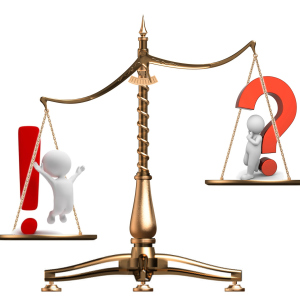Capitalism is a financial concept, under the terms of which individuals own production factors. Owners (entrepreneurs, businessmen) carry out control through companies.
Properties of capitalism
The ownership of capitalism determines the fact that the owners control the factors of production, and they also have income from this property. This provides them with the opportunity to productively dispose of our own companies. Similarly, this gives them the reason to maximize income.
Company owners are their shareholders. The level of control of shareholders depends on the number of shares belonging to them. Shareholders choose the Board of Directors. The Board of Directors hires managers to lead the company.
Capitalism is possible only with the development of a free market economy. Goods and services within the market economy are distributed in accordance with the principles of consumer demand and suggestions. The law of consumer demand states that if the demand for a particular product increases, its price is raised. If competing manufacturers know that they have the opportunity to achieve higher income, they increase the production process. The increase in supply reduces the cost of goods before the stage on which supply and supply will be equilibrium.
Manufacturers compete for the greatest income. They establish an extremely possible price for their products, trying to maximally reduce costs. Competition preserves a reasonable value of the production and performance of production.
The next element of capitalism is the free activity of financial markets. Financial markets make it possible to attract cash for growth. Businesses share income among the owners. These are attributes, co-owners and individual owners.
State responsibility under capitalism is to protect the free market. The state should prevent the emergence of monopolies and oligarchs who receive an unfair advantage over other market participants. The government is similar to state defense and provides infrastructure. It taxes profits from money growth for the implementation of such tasks.

The advantages of capitalism
Capitalism allows the consumer to receive the best products at the best prices. Buyers will pay only for what they like to a greater extent. Manufacturers of goods and services suggest that customers are desirable, as much as possible, high prices for which customers are willing to consume their products. Prices are maintained at a low level due to competition among manufacturers. They have to do their products as high quality as possible to maximize profits.
The most important for the financial lift becomes the remuneration of the manufacturer for new technologies. The manufacturer seeks to make ways to manufacture as efficient as possible. New technologies further lead to the emergence of other goods.

Negative traits of capitalism
Capitalism does not take into account the interests of those persons who do not have competitive skills. In this category, the elderly citizens, children, persons with disabilities, in general, those who need care are included. In order to comply with the functioning of our society, capitalism obliges to national politics, which supports the family.
Despite the idea of \u200b\u200b"equal playing field", capitalism does not favor the equality of prospects. Those people who do not have the right links and initial capital is unlikely to once be able to join the "Higher League".
In a short term, inequality is very profitable for the "winners" of capitalism. This leads to a weakening of competition. Capitalists have the opportunity to apply their strength in order to "install order", forming obstacles for new players in the system. For example, they will sacrifice cash by elected officials who promote laws that benefit their industry.
In the long term, the inequality will limit consumer choice and new technologies, which the selection and form. For example, a business team consisting of people belonging to different social groups, it is better able to identify market niches. This team is able to understand the needs of a wider range of people, and to orient products to meet those needs.
Capitalism does not include the costs that are not the producers themselves and the external environment, such as environmental degradation and climate change. For the producer is more important to make the products cheaper and more accessible now, at this point in time, however, such an attitude to the environment gradually leads to environmental degradation and, therefore, greatly reduces the quality of life in injured areas. The government must ensure the preservation of natural resources, avoiding lowering the quality of life of citizens.

Capitalism and Socialism
Socialism advocates claim that their system is formed of capitalism, modifying it, ensuring fair distribution between the citizens of those goods and services that they want. Not only the individual business owners, but also society as a whole has all the elements of production.
Various socialist governments have at their disposal the oil, gas and other industries related to energy. The government itself derives income tax instead of corporate taxes on private oil companies. It uses this income in the programs of national expenditure. Such governmental organizations continue to compete with private in the global economy.

Capitalism and Communism
Communism is formed not only socialism, but also carries the elements of capitalism. Authorities guarantee every citizen a minimum standard of living, regardless of their economic contribution.
Most States today comprise the components of all the three ways the organization. This mixture was mixed systems is economy. Some elements of capitalism, as a rule, are always present, even in authoritarian states.

Capitalism - an economic system , based on private ownership of the means of production and exploitation for profit

















